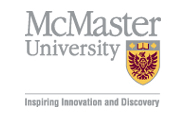Syllabus for Probability and Statistics Comprehensive, Part 1
Linear Algebra:
Matrices and systems of linear equations. Vector spaces
over general
fields, subspaces, linear independence, basis, dimension. Determinants.
Linear
transformations, associated matrices, change of basis, dimension
formula. Dual
vectorspaces. Eigenvalues, eigenspaces, diagonalization, Jordan
canonical form. Inner
product spaces, bilinear, quadratic and hermitian forms. Adjoint,
self-adjoint,
orthogonal and unitary operators. Diagonalization in Euclidean and
unitary
spaces. The spectral theorem.
References: Schaum's Outlines: Linear Algebra: Chapters 1--13.
Basic Real Analysis:
Real numbers: Infimum and supremum, limits of sequences, monotone
sequences, Cauchy sequences.
Continuity: limits of functions, continuous functions, the intermediate
value theorem, maxima and minima, uniform continuity, monotone
functions, inverse functions.
Differentiation: the derivative, mean value theorem, l’Hospital’s rule,
Taylor’s
expansion with remainder.
Integration: Riemann integrals, the fundamental theorem of calculus,
improper integrals.
Sequences of functions: pointwise and uniform convergence, continuity
and convergence, interchange of limit with derivatives and integrals,
Arzela-Ascoli theorem, Weierstrass and
Stone-Weierstrass approximation theorems. Differentiation of integrals
with parameters.
Infinite series: series of numbers and functions, absolute convergence,
power series.
Elementary functions: rigorous introduction of the exponential,
logarithmic, trigonometric and inverse trigonometric functions.
Functions of several variables: the derivative as a linear
transformation, Taylor’s
theorem, the inverse and implicit function theorems.
Vector calculus: multiple integrals, path and surface integrals, change
of variables theorem for integrals, calculation of areas, volumes and
arc-lengths, the integral theorems of vector analysis (Green’s,
Stokes’, and Gauss’ theorems).
Metric spaces: basic topology, compactness, connectedness,
completeness.
References: “Vector Calculus”, Marsden and Tromba
“Principles of Mathematical Analysis”, Walter Rudin
“Elementary Classical Analysis”, J. Marsden and M. Hoffman
Complex Variables:
Analytic functions, Cauchy-Riemann equations, entire
functions, the
exponential, trigonometric, and logarithmic functions, Euler’s formula.
Line integrals, Cauchy’s theorem, Cauchy’s integral formula, power
series
representation and consequences, uniqueness theorem, mean value
theorem,
maximum modulus principle, open mapping theorem.
Morera’s theorem, Liouville’s theorem and applications, meromorphic
functions,
Laurent expansions, residue theorem and applications, fractional linear
transformations.
References: “Function Theory of One Complex Variable”, R. Greene and S.
Krantz
Basic Probability:
Basic concepts: random variables, mass and density functions,
combinatorial analysis, conditional probability, Bayes' formula,
independence.
Expectation: moments, generating functions (moment, probability,
factorial), characteristic function, Markov's inequality, Chebyshev's
inequality, conditional expectation, independence, correlation.
Special distributions and their generating functions: binomial,
negative binomial, Poisson, hypergeometric, multinomial, gamma, sums of
independent gamma variables, beta, relationships between gamma and
beta, normal, linear combinations of normal variables, exponential,
Cauchy, Raleigh, Weibull, extreme value.
Functions of random variables and transformations.
Limit theorems: types of convergence (almost sure, in probability, in
distribution, Lp), continuity theorem, central limit
theorem, law of large numbers.
References:
“A First Course in Probability” by Sheldon Ross, 6th edition,
Prentice-Hall, Upper
Saddle River, 2002.
Basic Statistics:
Sampling distributions: independent random sampling, Chi-square, t and
F distributions, order statistics, independence between X-bar and S2,
noncentral Chi-square, t and F.
Multivariate normal distribution: properties, moment generating
function, marginal and conditional densities, Cochran's theorem.
Basic concepts: sufficiency, completeness and ancillarity.
Point estimation: Fisher's information, Cramer-Rao lower bound, minimum
variance unbiased estimation, Rao-Blackwell theorem.
Methods of estimation: moment, least-squares, likelihood function and
maximum likelihood. Interval estimation: pivotal quantities,
conditional inference.
Asymptotic inference: large sample properties of MLEs. likelihood ratio
statistic.
Hypothesis testing: Neyman-Pearson fundamental lemma, uniformly most
powerful tests, likelihood ratio test.
Nonparametric inference: Kolmogorov-Smirnoff, Pearson chi-square,
contingency tables, Wilcoxon and permutation tests.
Bayesian inference: prior and posterior distributions, Bayesian
intervals, improper priors.
References:
“Introduction to Mathematical Statistics” by Robert V. Hogg and Allen
T. Craig,
5th edition, Macmillan,
New York, 1995.
“Statistical Inference” by S.D. Silvey, Chapman & Hall, London, 1991.
|
|
